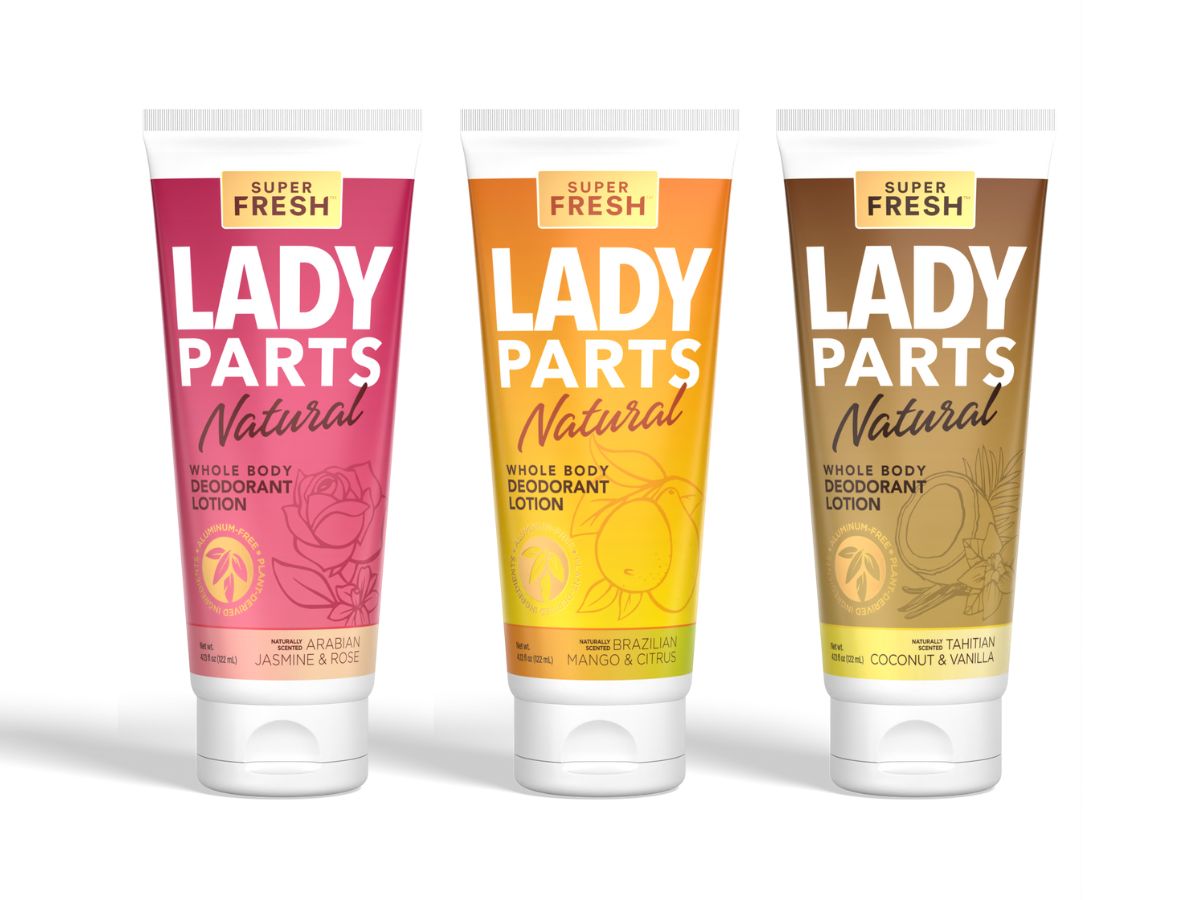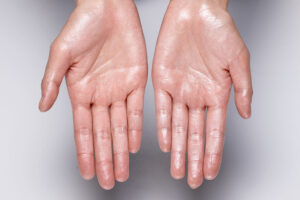Table of Contents
In recent years, many traditional health and beauty brands and products have begun offering natural versions of their products – and deodorants are no exception.
With so many options, you can easily become overwhelmed by all the choices you have for natural deodorants, and finding the best all-natural deodorant can seem like an impossible task.
But take heart – we’ve compiled a collection of some of the best-performing and most popular natural deodorants to help you get started.
Top 10 Best Natural Deodorants
1. Native Deodorant
2. Schmidt’s Deodorant
3. Soapwalla Deodorant Cream
4. Kopari Deodorant
5. Piper Wai Deodorant
6. Lady Parts Natural Deodorant
7. Yes to Lavender Scented Natural Charcoal Deodorant
8. Lume Deodorant
9. Tom’s Deodorant
10. Good ol’ DIY Deodorant
Formulated for those who might have underlying skin conditions or who just prefer to go chemical-free with their health and beauty products, natural deodorant is well-represented within the total deodorant market these days.
Keep reading for more about how to find your best natural deodorant.
What Makes a Deodorant Natural?
Great question! “Natural” means very different things to different people, and the term isn’t regulated by the U.S. Food and Drug Administration or the U.S. Department of Agriculture.
In the world of deodorant, at its root, “natural” is typically a code word for “chemical-free” or “deodorant without antiperspirant.”
That just means that the all-natural deodorant product you choose can help you fight off unwanted stench, although you can’t count on it to stop your sweat glands from releasing sweat in the first place.
Some people worry about the health effects of chemicals, which leads them to seek a natural deodorant.
Keep in mind, however, that the FDA, the National Cancer Institute, and the American Cancer Society all agree that there’s no evidence to support any adverse events related to the use of antiperspirants.
Lots of natural deodorant brands make sure they’re formulated with no potential irritants. If you think about it, the skin of your armpits is pretty thin.
If you shave your armpits regularly, it’s easy for the area to become highly sensitive. Nobody wants bumpy, itchy, burning pits because your deodorant is irritating your skin.
This means a lot of natural deodorants also leave out any kind of fragrance, propylene glycol, propanediol, and simple alcohols.
Instead, they use a whole host of natural ingredients that are known for their ability to fight odor and bacteria – ingredients like zinc oxide, magnesium, shea butter, tea tree oil, baking soda, witch hazel, and coconut oil, for example.
You have to be careful about baking soda, though – it works well to kill bacteria on your skin, which helps prevent odor, but some users do find it irritating.
Luckily, you can still find several options without baking soda for the most sensitive skin.
At their core, most natural deodorant choices will contain very similar elements.
First, there’s usually some type of starch or powder to absorb moisture and help neutralize odor – ingredients like arrowroot powder and baking soda are pretty common.
But you have to have a powder base of some sort.
Activated carbon is another ingredient that’s typical in natural deodorants – it’s powerful enough to draw out oil, dirt and other impurities from clogged pores, and it’s also naturally odor-fighting.
It might look a little scary, but many users say it’s highly effective.
You’ll also see various organic essential oils like sage, tea tree or rosemary that boast mild antimicrobial properties and can help fight bacteria and odor.
The plus is that they also help add their own pleasant scent.
You may also see waxy ingredients like candelilla wax or beeswax, which help provide the glossy, smooth consistency that mimics more mainstream deodorant products for easy application.
For natural deodorants that do include fragrances, you’ll find that lavender is the most common, especially for deodorant brands marketed toward women.
You’ll also see scents like rose, jasmine, and honeysuckle.
Overall, most natural deodorant scents are considered unisex, so don’t worry about smelling either too girly or too masculine depending on the scent you choose.
Whether you’re a health-conscious consumer in general, or if you’re irritated by some of the traditional ingredients in antiperspirants and deodorants, the list below is a good start toward finding the best natural deodorant for you.
Top 10 Best Natural Deodorants
As with most health and beauty products, you’ll want to experiment a little to find the best natural deodorant for you – there’s no one product that’s the absolute best for everyone, and there’s no shortage of options to choose from.
But the list below should at least give you some background about what makes each product unique, along with how users feel about it.
1. Native Deodorant
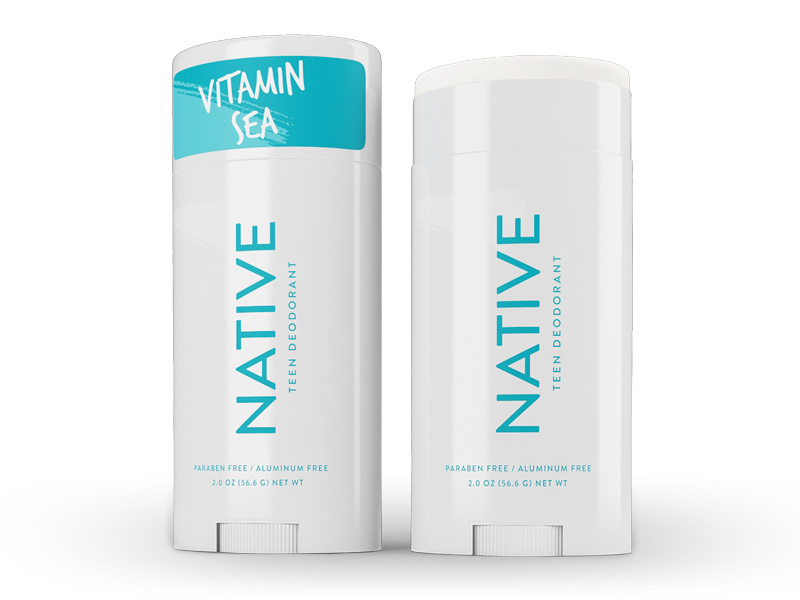
This deodorant gets high marks for its gentle and moisturizing formula. All of the Native deodorants are residue-free and paraben-free, and users say they don’t clump under your arms.
Native Deodorant contains no aluminum or sulfates, either, but it does feature baking soda, along with coconut oil, shea butter, and probiotics.
Overall, Native Deodorant reviewers give this brand a big thumbs up.
2. Schmidt’s Deodorant
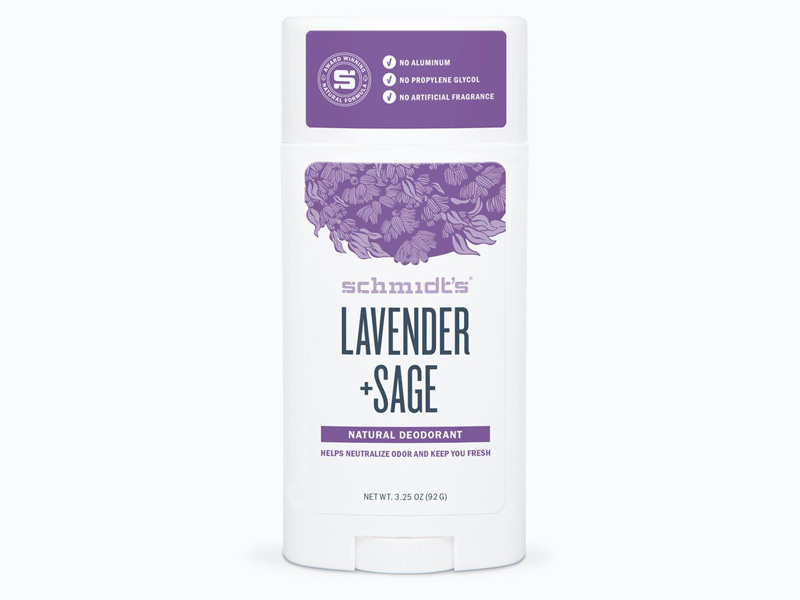
This deodorant is specially formulated to be gentle on sensitive skin. It’s not only free of baking soda, but also parabens, synthetic fragrance, phthalates, and propylene glycol.
Instead, this residue-free and flake-free formulation relies heavily on coconut oil, shea butter, and arrowroot powder.
Schmidt’s Natural Deodorant has a wide range of natural scents, including freshly fallen rain, rose and vanilla, and charcoal and magnesium.
Schmidt’s is a well-known brand in the world of natural products, and this deodorant is touted to hold up well, even when you’re sweating.
Their line of deodorants is available in both stick and cream form.
3. Soapwalla Deodorant Cream
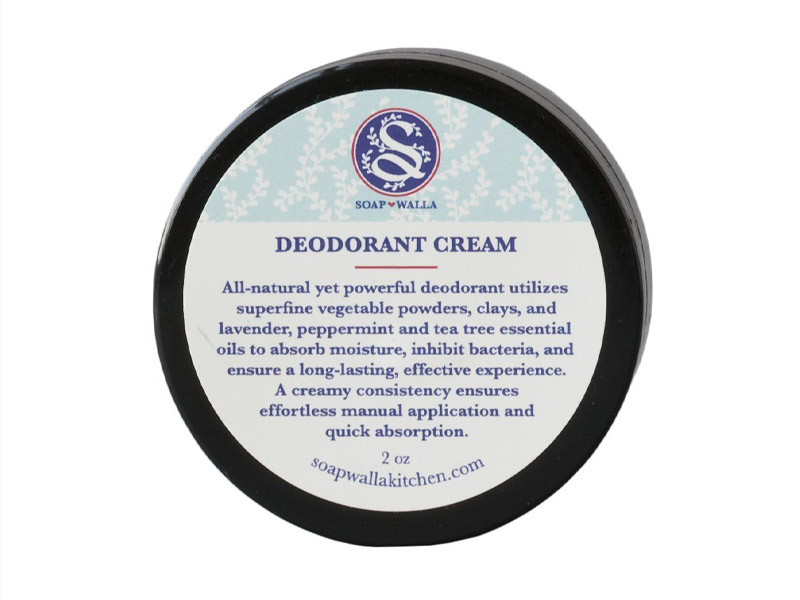
As the name suggests, this deodorant comes as a cream, so you have to apply it with your hands. The Soapwalla formulation includes finely ground vegetable powders and clays that help absorb sweat.
It also includes essential oils like peppermint, lavender, and tea tree that neutralize odors and help limit bacterial growth.
Vegan and organic, this is a natural deodorant for men and women.
4. Kopari Deodorant
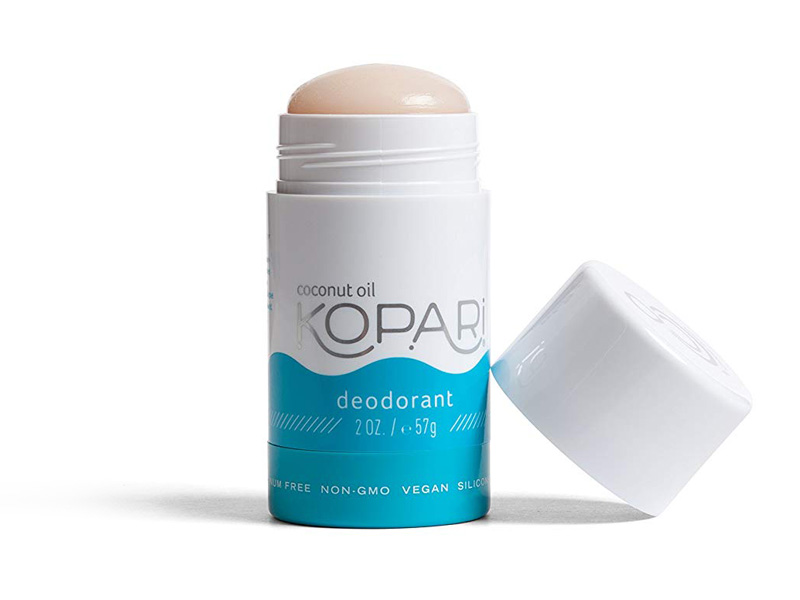
Kopari deodorant is formulated with activated charcoal, and many users say it feels great on their skin. It’s also free of baking soda, which some users find irritating.
With a base of coconut oil, this deodorant features a mild, tropical scent that isn’t overpowering, yet doesn’t let any odor get through. It also doesn’t stain clothing, which is a huge plus.
5. Piper Wai Deodorant
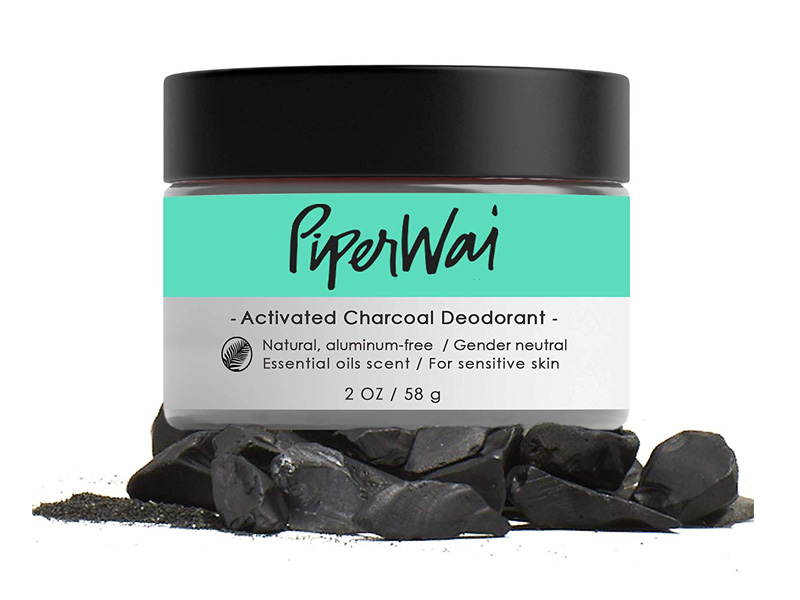
This brand was one of the first “natural” deodorants on the mass market. You might remember it from its appearance on Shark Tank. The product is actually a charcoal lotion rather than a stick.
It comes in a small pot, and you apply it to your pits just like any other lotion or cream.
It goes on clear, and all ingredients are also vegan and cruelty-free. And even though you have to apply it with your hands, most users say it’s not messy at all and consistently works great.
6. Lady Parts Natural Deodorant Lotion
Lady Parts Natural Deodorant isn’t just another deodorant; it’s a unique lotion designed for “lady parts”. Perfect for breasts, underarms, groin and other hidden areas that get swampy and smelly.
It’s 96% natural and aluminum-free, making it super gentle on your skin. No more worries about harsh chemicals! And the scent – oh, it’s like a gentle breeze of jasmine and roses, pleasant but never overwhelming. Users adore its just-right fragrance, often saying it’s their favorite.
This lotion is a winner when it comes to keeping you fresh. It’s perfect even for those with sensitive skin, as it avoids common irritants like parabens and baking soda. It goes on smoothly, leaving no stains on clothes, so you can feel confident all day long.
Many women love Lady Parts as an alternative to the popular Lume Deodorant. It smells better and lasts just as long.
7. Yes to Lavender Scented Natural Charcoal Deodorant
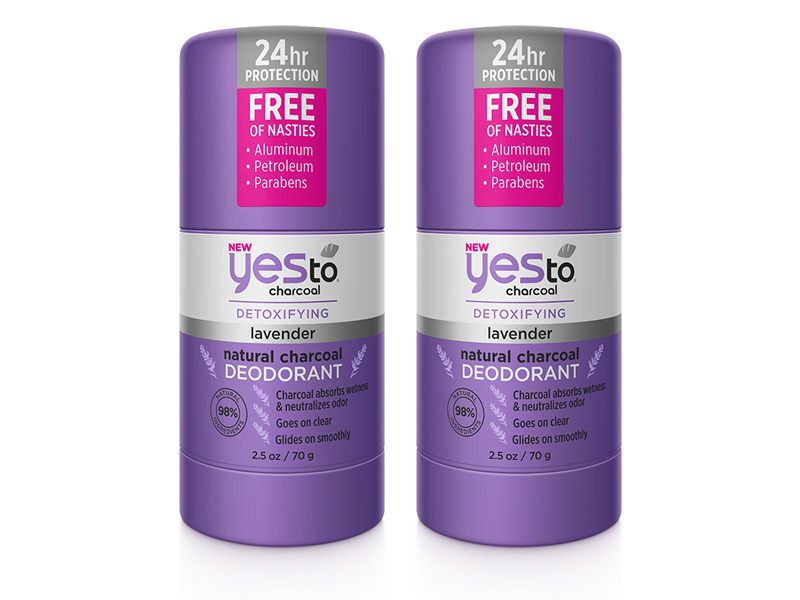
This all-natural deodorant contains powerful charcoal to absorb wetness and detoxify your armpit area. The mild lavender scent also keeps your pits smelling fresh and clean.
This one looks a little different because of the charcoal ingredient – it looks light gray in the stick, but it goes onto your skin clear and doesn’t leave a residue.
The scent is mild and not overpowering, and this deodorant has lots of moisturizing properties, too.
8. Lume Deodorant
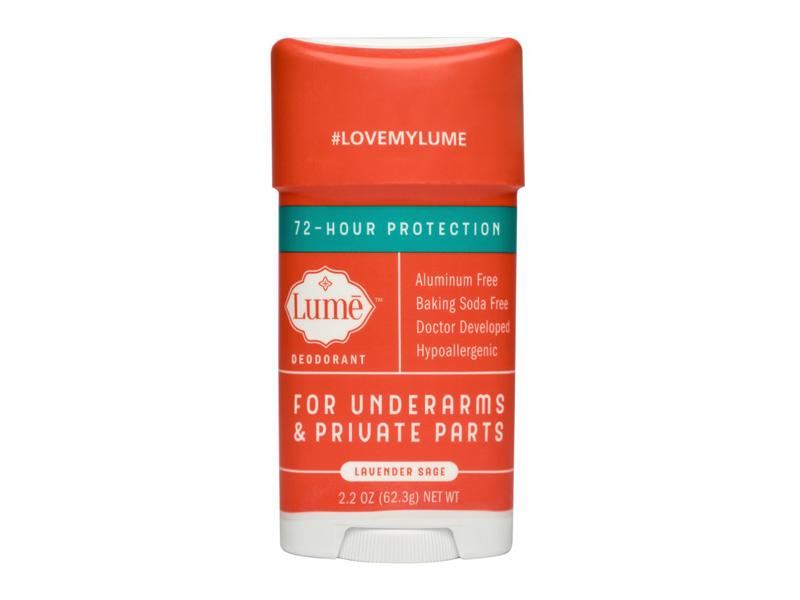
This natural deodorant has a really creamy formula that helps it go on smoothly without leaving stains or yucky residue under your pits.
If you’re not crazy about strong scents, this version might be for you – it comes in a mild lavender sage and unscented version only.
Developed by a practicing obstetrician and gynecologist, the formulation is so mild that it boasts being good for even your most private, sensitive sweaty parts.
9. Tom’s Deodorant
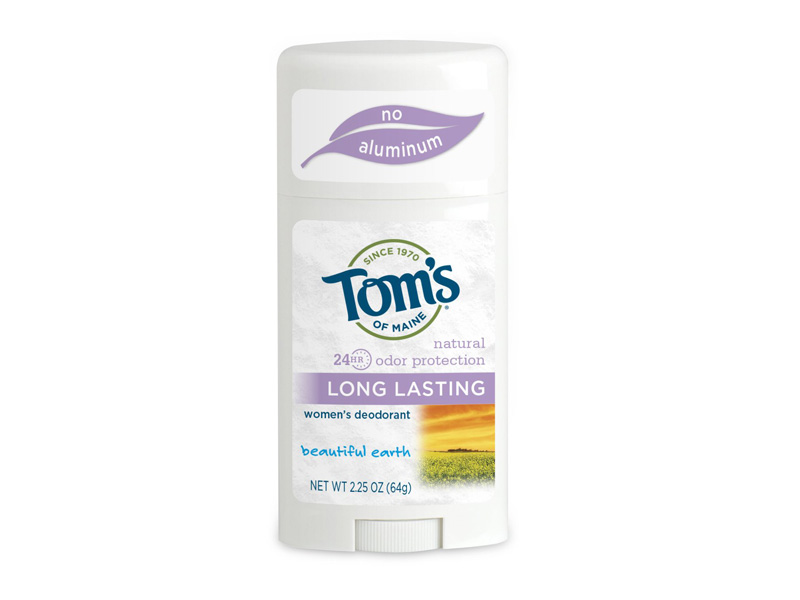
Tom’s is a well-known brand for health and beauty products, so you shouldn’t have any trouble finding it in your local drugstore. This deodorant stick boasts “clinically proven” 24-hour odor-fighting protection.
Tom’s was one of the original natural deodorant brands, so it’s developed quite a following and has become fairly mainstream in recent years.
10. Good ol’ DIY Deodorant
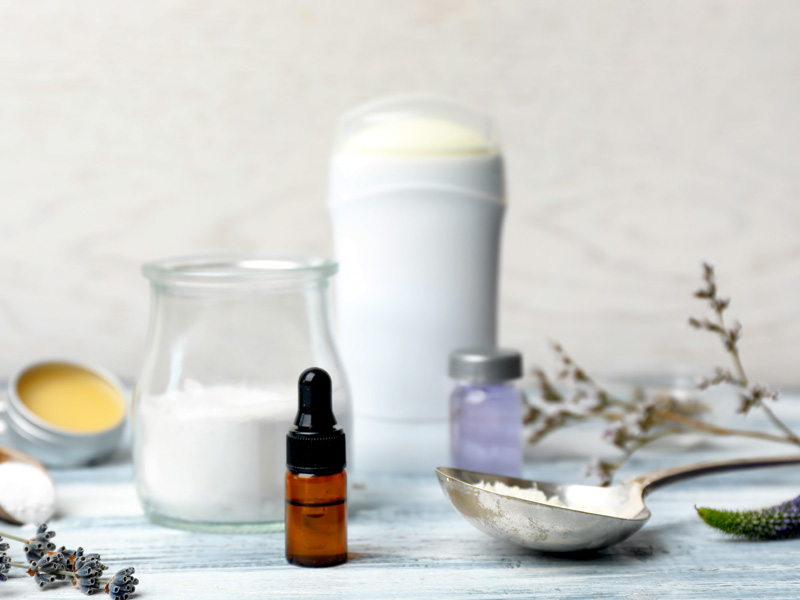
You don’t have to be content with natural deodorants already on the market. Did you know that a lot of people actually make their own?
If you want to know how to make natural deodorant, just do a simple Google search and you’ll find endless DIY deodorant recipes.
It usually just involves heating up and melting a base like coconut oil or shea butter, or a combination of the two, then adding baking soda and essential oils before pouring into a container and allowing the mixture to cool.
You can play around with different recipes until you find one that works well and has a smell you enjoy.
Why use natural deodorant?
Ultimately, the choice to use a natural deodorant is an individual one. It all depends on your body chemistry and personal preference.
No two people have the same chemical makeup, so a particular deodorant that works great for someone else may not work for you and vice versa.
You may need to test quite a few before finding the best natural deodorant for you.
Some people switch to natural deodorant because of sensitive skin issues.
Natural deodorants are able to help you fight odor without using ingredients that are irritating, especially to those with sensitive skin, plus they offer moisturizing benefits and more natural scents.
For example, some people who are prone to razor burn under their arms may have trouble with antiperspirants and some traditional deodorants, which can lead to bumpy skin and painful irritation.
Natural deodorants, on the other hand, often contain ingredients like witch hazel or Aloe vera that help smooth and calm razor burn and even shrink pores.
Some people simply prefer a lifestyle that steers away from artificial ingredients and chemicals in general for a variety of personal reasons.
These folks may prefer to use all-natural products across the board for environmental or social justice reasons, which makes switching to a natural deodorant a no-brainer.
In addition to using all-natural ingredients, many natural deodorant brands are mindful of packaging concerns and try to limit their use of plastic and/or lean toward biodegradable packaging materials.
When doing your research and making your choice, keep in mind that “natural” and “organic” are completely different animals. Just because it’s natural doesn’t necessarily mean that it’s organic, for example.
If a deodorant is made with agricultural products that are considered organically produced, handled, processed and/or labeled, it can be certified as “organic” under three different tiers: “100 percent organic,” “organic” or “made with organic ingredients.”
You’ll need to decide whether you’re comfortable simply with natural deodorant, or if you’ll insist on organic versions.
Most natural deodorants will avoid these ingredients
What’s NOT in a natural deodorant may be more telling than what’s in it. Natural deodorants as a class will typically be free of the following ingredients.
Parabens: Many traditional deodorants and antiperspirants include parabens, which are synthetic substances often used as product preservatives. Basically, parabens keep bacteria from growing in your deodorant.
But natural deodorants will use alternative natural preservatives like various essential oils and plant extracts.
Artificial Fragrance: If you see the generic term “fragrance” on an ingredient list, consider that code for some kind of chemical concoction that gives the deodorant its smell.
Instead of synthetic scents, natural deodorants will rely more on essential oils, such as rosemary, sage, peppermint, lavender, and tea tree, for more of a mild, fresh, natural scent.
Aluminum: Aluminum is the active ingredient in an antiperspirant that keeps your sweat glands from releasing sweat.
Because natural deodorants are designed to prevent odor rather than sweat itself, you won’t see aluminum in any natural deodorant product – or at least in none of the options presented here.
That’s the key difference between an antiperspirant and a deodorant in the first place.
Triclosan: Triclosan is a powerful anti-bacterial agent often found in most mainstream antiperspirants and deodorants.
In fact, it’s so powerful that it can’t be filtered out during the wastewater treatment process, so many people worry about the long-term effects of triclosan regularly being introduced into natural waterways.
Most natural deodorants will be triclosan-free.
Talcum Powder: Talcum powder is great for absorbing moisture and it’s also good at reducing friction. It’s one of the ingredients that helps traditional deodorant glide onto your skin so easily.
In its most basic form, talc also contains asbestos, but the talc used in so many common consumer products today is asbestos-free and highly regulated.
But you’ll still find that many natural options tend to steer clear of talcum powder.
Propylene Glycol: A key ingredient in antifreeze and many other consumer products, propylene glycol is considered questionable by many who prefer a chemical-free lifestyle, even though it is considered safe by both the FDA and the World Health Organization for inclusion in foods, cosmetics, and pharmaceuticals.
What’s the difference between deodorant and antiperspirant?
The very first mass-marketed deodorant launched in 1888, followed not long after by the first antiperspirant in 1903.
Thankfully, these two products marked the end of people constantly dousing themselves in perfume to cover up their body odor.
When it comes to deodorant vs. antiperspirant, some people mistakenly think they are the same thing. But this couldn’t be further from the truth! Deodorants and antiperspirants are formulated completely differently to get different results.
At the most basic level, antiperspirants stop sweat at its source, while deodorants fight the odor that sweat can sometimes cause.
Sweat, by itself, doesn’t really stink. In fact, it doesn’t smell like anything – it’s generally just a mixture of water and salt. Unpleasant body odor is caused by your sweat mixing with bacteria that live on your skin.
This problem is more noticeable in your armpits, groin, and feet since these places naturally harbor higher bacteria levels.
When you use a deodorant alone, it can help stop the breakdown of bacteria on your skin, which will prevent odor. But your deodorant won’t reduce sweat. Deodorants exist to keep you from stinking.
That’s all. Period. They generally combine some type of antibacterial agent and a fragrance agent.
Antiperspirants, on the other hand, are formulated to stop sweat before it starts.
Most antiperspirants contain some form of aluminum – like aluminum chloride, for example, which works as a stopper within your sweat glands and keep them from releasing sweat in the first place.
Is antiperspirant bad? You can rest easy knowing antiperspirants are safe.
An antiperspirant basically turns into a gel when it reacts with your skin, which temporarily blocks your sweat glands.
Because antiperspirants prevent you from sweating – which is a natural bodily function – they are technically classified by the FDA as a drug.
Some antiperspirants are classified as a clinical or prescription antiperspirant because they are formulated for especially profuse sweating.
Antiperspirants that also feature a fragrance are billed as deodorant-antiperspirants. You’re not likely to see a product touted as a natural antiperspirant.
Deodorants and antiperspirants should be used differently, too. For example, antiperspirants are most effective if you apply them at night.
That way, they have all night to create a solid barrier for your sweat glands. You can also apply your antiperspirant again in the morning, but the nighttime application is key.
Deodorant, on the other hand, is most effective if you apply it right before you think you’ll sweat a lot – so a morning application before going out for the day works great, and you don’t need a nighttime application unless you’re going out.
Both can be reapplied during the day as well.
Because by definition a natural deodorant can’t contain a chemical like aluminum, none of the options here can be considered an antiperspirant.
But antiperspirants and deodorants can be used together, often with great success.
The combo lets you fight sweat before it starts while keeping you smelling nice and fresh. If you decide to go this route, make sure to apply your antiperspirant at night before you go to bed and your deodorant in the morning.
The best natural deodorants
For people who sweat a lot, deodorant is simply a fact of life – you can’t leave home without it.
But you can avoid some of the unwanted side effects like skin irritation and chemicals by choosing a natural deodorant version.
Start with the products listed here or try your hand at a homemade deodorant.
People have a lot of opinions about natural deodorant, so make sure to do your own research and try several brands to see what performs best for you.
What works for one person won’t necessarily work for everyone due to variations in body chemistry, personal preference, sweat level, and skin sensitivity.
Feel free to experiment and try several different options and combos until you find the best deodorant for sweaty armpits.
Even the best natural deodorants tend to fall short when it comes to stopping excessive sweat and odor.
If excessive sweating is a problem, consider a strong antiperspirant like SweatBlock to help control overactive sweat glands. SweatBlock is not natural, but it can be a life-changer for people who struggle with hyperhidrosis and excessive armpit sweating.
You might also like...
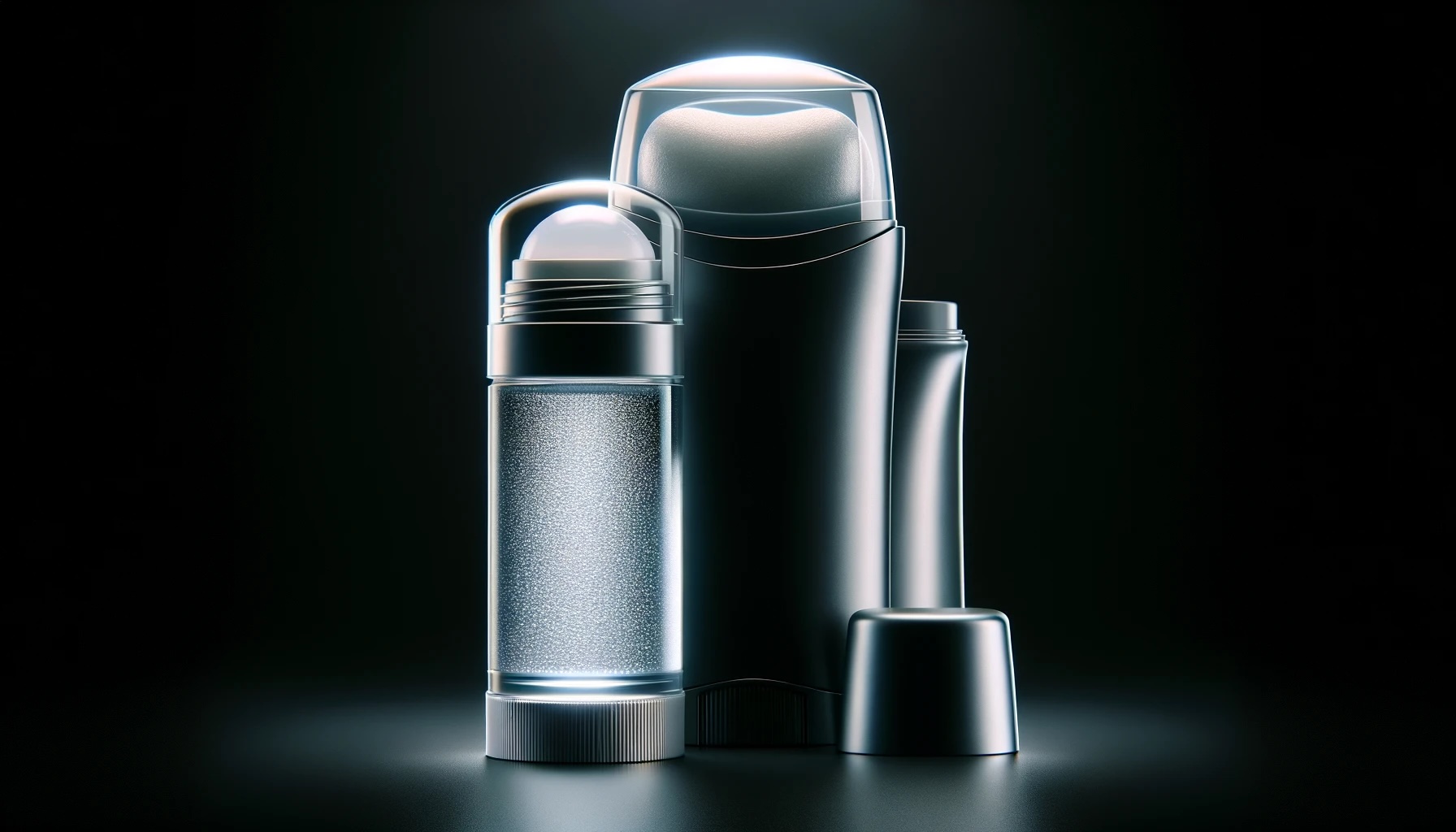
Antiperspirant vs Deodorant: What’s the Difference?
Table of Contents Did you know that deodorant and antiperspirant aren’t the same? It’s okay if you didn’t; most people

How to Stop Sweating Naturally – Huge List Tips & Home Remedies
Table of Contents For most people, sweating is a totally natural bodily function. For others, it’s a nonstop nightmare. Excessive
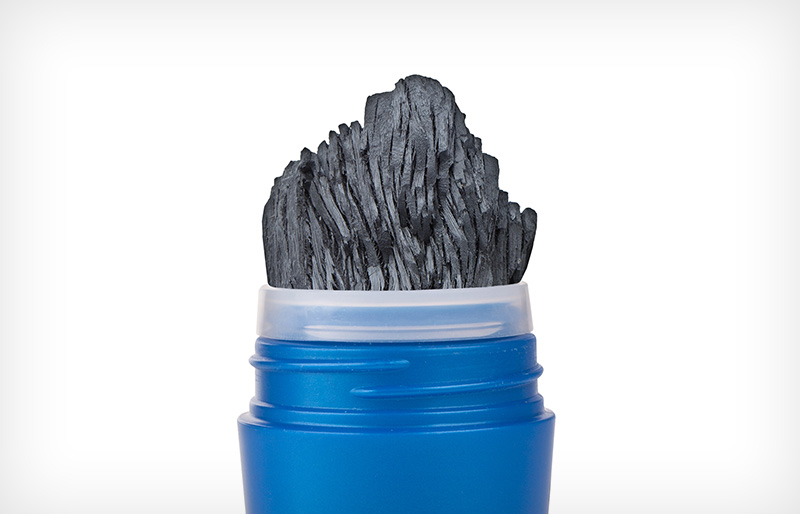
What’s the deal with Charcoal Deodorant?
Table of Contents Okay, so let’s talk about charcoal deodorant. Charcoal is everywhere right now. It’s in face wash, toothpaste,





